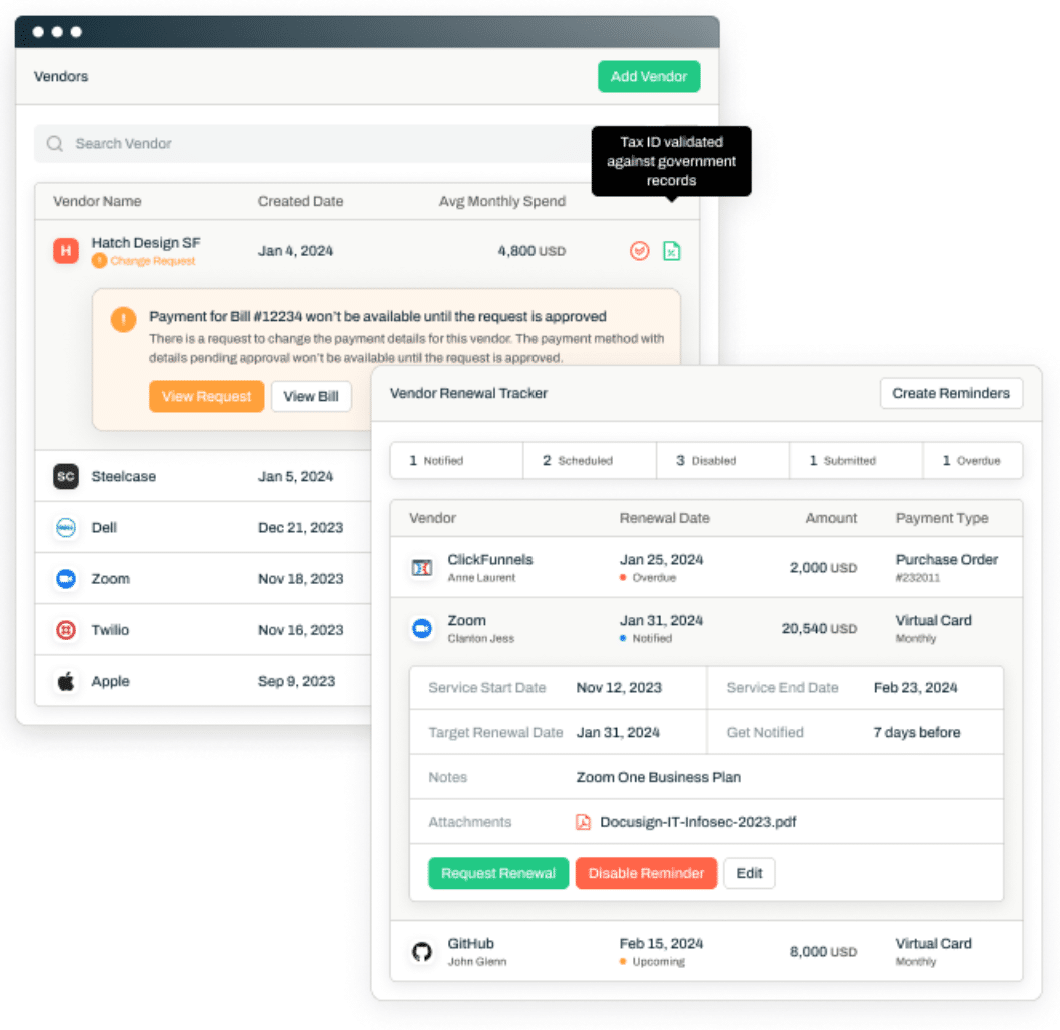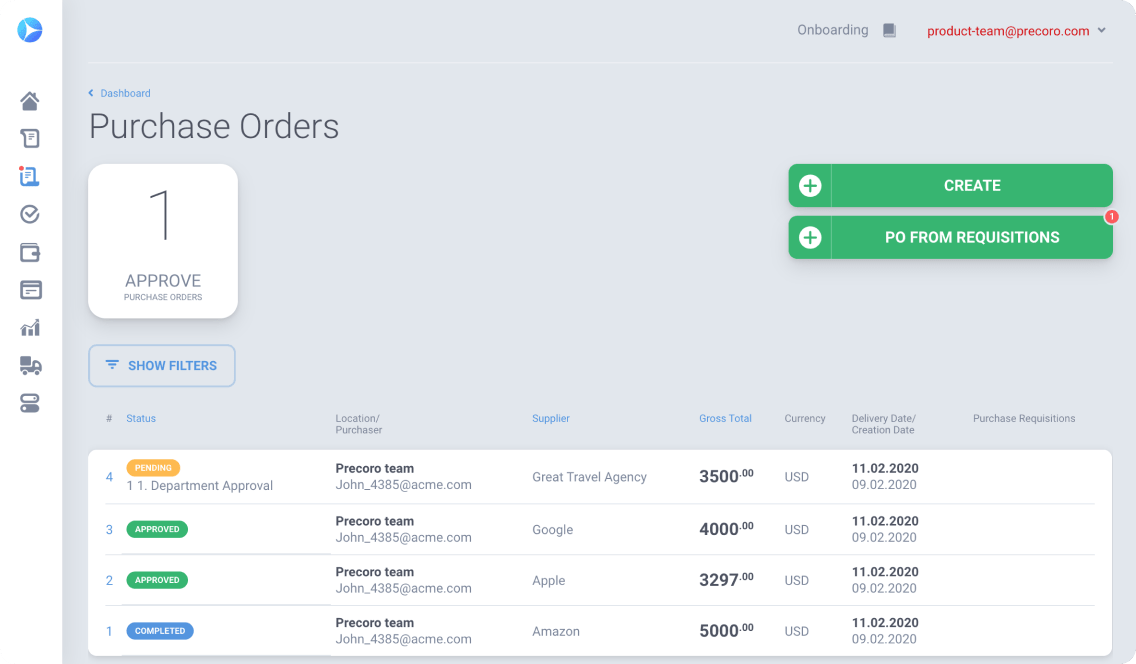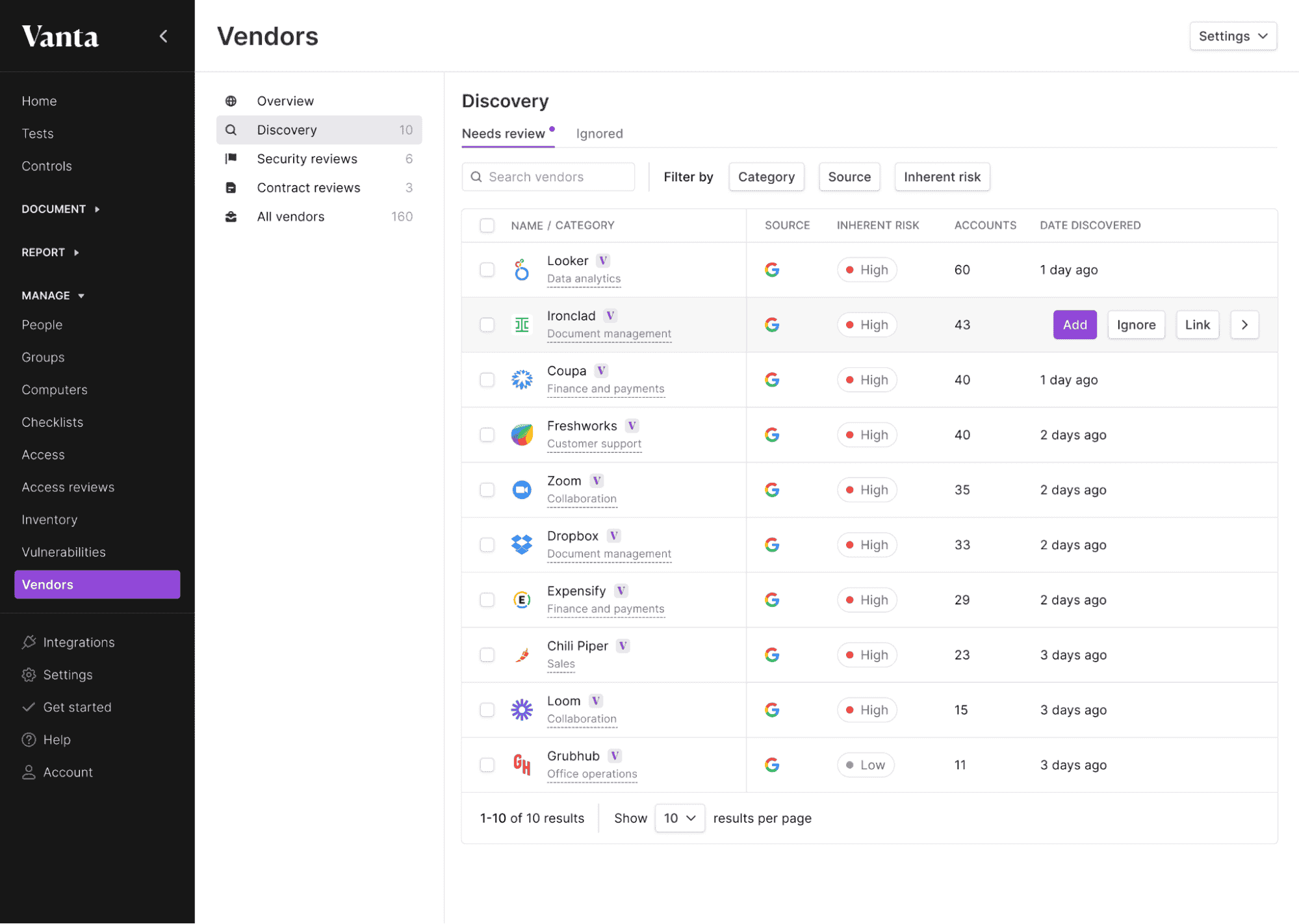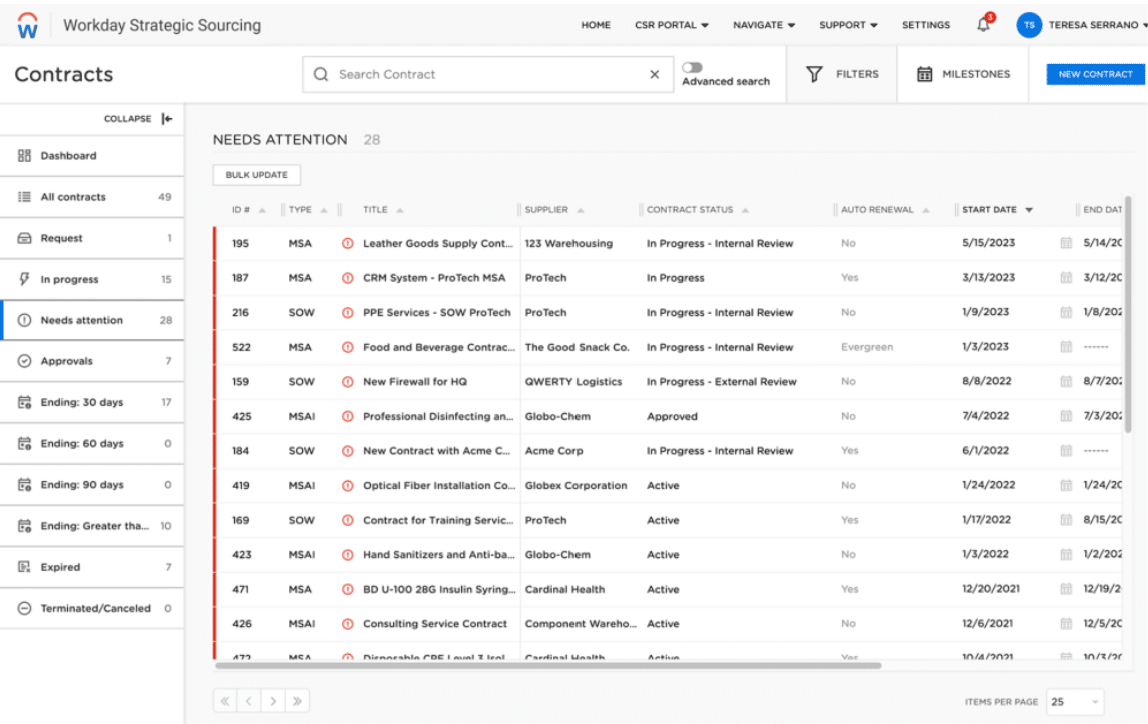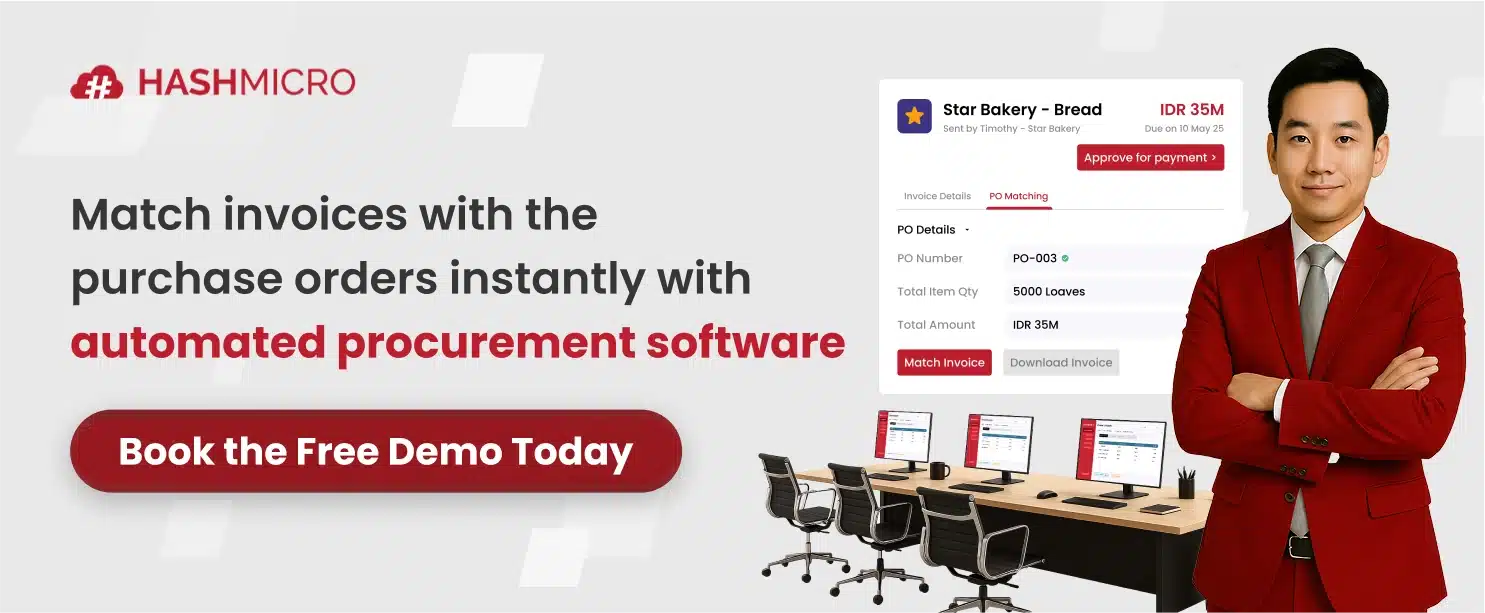Vendor management is no easy walk in the park. It often feels like you’re trying to secure the right products and services for your business procurement importance while juggling suppliers, negotiating contracts, and ensuring compliance, while recognizing the critical importance of effective procurement practices.
By treating your suppliers well, you foster trust and build a partnership where they feel valued and motivated to collaborate with you, regardless of immediate profitability. Strong supplier relationships are essential for creating a solid foundation for long-term business success.
That said, it’s important to note that while some businesses have a solid vendor management strategy, they often aim to avoid becoming overly dependent on a single vendor. This approach helps reduce risks, such as supply chain disruptions or pricing pressures, that can arise from relying too heavily on one source.
Now that you have a clearer picture, it’s time to discover the ideal vendor management software for your business. We’ll take you through from vendor management definition to our carefully curated list of 10 software recommendations which is to die for.
Key Takeaways
|
What is Vendor Management?
From the introduction, you may have gotten a glimpse of what vendor management is all about. However, that’s just a small part of the bigger picture. Let’s dive deeper into the definition.
Vendor management is the process of selecting, maintaining, and overseeing relationships with external suppliers, also known as vendors. Essentially, it’s about ensuring that your business works with the right partners to meet your needs.
This includes sourcing goods and services while maximizing the value you receive from these relationships. The ultimate goal of vendor management is to streamline operations, reduce costs, and minimize risks. At the same time, it ensures that you get the products or services you need, when you need them, and at the right quality.
By focusing on these objectives, businesses can maintain a competitive edge while fostering long-term, productive partnerships with their vendors.
Who are Vendors?
Vendors are entities that supply goods or services to businesses and consumers. They play a crucial role in the supply chain by sourcing, purchasing, and selling products or services. According to the context of vendor management and systems, vendors typically fall into two primary categories:
- Suppliers of Goods and Services: These vendors provide products or services and are often supported by supplier management software to streamline procurement and ensure efficiency in the supply chain.
- Service Providers and Contractors: This category includes service providers, contingent workers, and contract employment agencies, who are managed through Vendor Management Software (VMS). These systems help businesses track, evaluate, and coordinate various service-based vendors effectively.
Why Do You Need Vendor Management Systems?
Managing vendors effectively has become one of the cornerstones of success. With globalization, increasing competition, and a growing reliance on external labor, businesses need a smarter way to handle their vendor relationships.
Vendor management software / software (VMS) is the solution, offering tools to streamline processes, enhance collaboration, and maintain compliance.
-
Vendor management system streamlines vendor relationships
Handling multiple vendors, contracts, and deadlines can quickly get overwhelming. Vendor management system bring all these elements together in a single platform, simplifying communication and making it easier to track important documents like contracts and invoices. This centralization not only saves time but also strengthens relationships by reducing miscommunication.
-
It enables flexibility and adaptability
Whether your business needs to scale up during peak seasons, hire specialized contractors, or adapt to changing market conditions, VMS helps you do it with ease. It allows you to efficiently manage temporary and external labor, ensuring your operations remain agile and responsive to new opportunities.
-
Vendor management system reduces risks and ensures compliance
Managing a geographically diverse workforce often involves navigating different legal, financial, and compliance requirements. Vendor management system help you stay on top of these challenges by offering tools to monitor compliance, address risks, and avoid disruptions. This ensures your operations run smoothly across all regions and teams.
-
It boosts cost efficiency and operational productivity
Automating repetitive tasks such as tracking invoices, evaluating vendor performance, and renewing contracts not only reduces human error but also saves valuable time. With real-time insights into vendor costs and efficiency, you can make better financial decisions, eliminate unnecessary expenses, and focus on strategic business goals.
-
Vendor management system improves speed and visibility
When the world began to need so many global workforce, speed and clarity were crucial. Vendor management system provides real-time visibility into your entire vendor ecosystem, making it easier to identify top-performing suppliers and secure the resources you need faster. This improved efficiency helps your business stay ahead of the competition.
What are the Benefits of Vendor Management Software?
Vendor management software (VMS) is a game-changing tool that helps businesses streamline their vendor relationships while improving performance, reducing risks, and optimizing costs. Here are the top benefits of implementing a VMS:
-
Improved vendor selection
A robust VMS gives you access to a wide range of vendors, making it easier to find the best fit for your business needs, budget, and goals. By streamlining the bidding process and automating the creation of requests for proposals (RFPs), businesses can secure competitive rates and high-quality services with minimal effort.
-
Enhanced cost savings
Vendor management software enables businesses to analyze vendor performance and track spending patterns. By automating these processes, it identifies cost-saving opportunities, negotiates better rates, and eliminates inefficiencies through maximizing the value of vendor relationships.
-
Faster vendor onboarding
With VMS, the onboarding process becomes faster and more efficient. By centralizing documentation and automating compliance checks, businesses can onboard new vendors quickly while ensuring all regulatory requirements are met. This minimizes delays and accelerates operations.
-
Reduced risk of supply chain disruption
Managing a supply chain involves dealing with various risks, from non-compliance to delivery delays. A VMS provides real-time monitoring and proactive risk management tools to identify and address potential issues before they impact your operations. This ensures a smoother and more reliable supply chain.
-
Strengthened supplier relationships
Good communication is key to maintaining healthy supplier relationships. Vendor management software facilitates better collaboration by providing a centralized platform for sharing updates, addressing issues, and tracking performance. This fosters trust and creates long-lasting partnerships.
-
Optimized contract management
Handling multiple contracts can be a daunting task. VMS simplifies this process by centralizing all contracts, making them easy to access, manage, and review. This improves decision-making, saves time, and ensures consistency in contract handling.
-
Centralized control and visibility
A VMS provides a bird’s-eye view of all vendor activities, from onboarding to performance reviews. With total visibility and control, businesses can ensure nothing falls through the cracks while maintaining compliance with both internal policies and external regulations.
What are Features to Look for in Vendor Management Software?
When selecting vendor management software (VMS) for your business, it’s essential to focus on features that will improve efficiency, reduce risks, and enhance vendor relationships. A good VMS should not only streamline operations but also align with your company’s specific needs. Here are the key features to look for:
-
Centralized vendor information
A top-notch VMS should offer a centralized system where all vendor details are stored in one place. This includes contracts, contact information, performance history, and compliance documents. With everything organized in one location, it becomes easier to access and manage vendor relationships efficiently.
-
Automation of onboarding and offboarding
Managing the onboarding and offboarding of vendors can be time-consuming and prone to errors if done manually. A reliable VMS automates these processes, ensuring that all required documentation is completed, and compliance checks are performed, without delays. This helps you onboard and offboard vendors smoothly while maintaining accuracy.
-
Real-time performance monitoring
To ensure that vendors meet your expectations, a VMS should allow you to track their performance in real-time. This includes monitoring key performance indicators (KPIs) such as delivery times, quality, and compliance. By staying on top of vendor performance, you can make data-driven decisions and address any issues before they escalate.
-
Compliance and risk management features
Compliance with local and international regulations is crucial for avoiding costly legal complications. Look for a VMS that includes tools for tracking compliance and identifying potential risks in your vendor network. These features will help you minimize legal exposure and ensure that your vendors meet all regulatory requirements.
-
Spend analysis and reporting tools
A VMS should give you the ability to analyze your spending on vendors and create detailed reports. This feature helps businesses track costs, uncover savings opportunities, and make informed decisions regarding vendor contracts. With clear visibility into your spending, you can better align your vendor relationships with your financial goals.
-
Contract management
Managing multiple contracts manually can be overwhelming. A good VMS provides centralized contract management, allowing you to store and review all vendor agreements in one place. You can track contract terms, set reminders for renewals, and ensure that your agreements are always up to date.
-
Intuitive user interface
For any software to be effective, it must be easy to use. A VMS should have a user-friendly interface that allows your team to navigate the system with ease. Customizable dashboards and clear navigation ensure that your staff can quickly adapt and utilize the software to its fullest potential.
-
Scalability and integration capabilities
Your business is growing, and your VMS should be able to grow with you. Look for a solution that scales with your needs and integrates seamlessly with your existing systems, such as accounting or ERP platforms. This ensures that your vendor management process remains smooth as your company expands.
-
Role-based access control
Security is a top priority when managing sensitive vendor information. A VMS should include role-based access control, allowing you to define permissions and limit access to sensitive data. This ensures that only authorized personnel can view or edit certain information, protecting both your company and your vendors.
-
Mobile access
When facing the current fast-paced business environment, having access to your vendor management system on the go is essential. A VMS with mobile functionality allows you and your team to manage vendors from anywhere, ensuring that you can stay on top of operations even when you’re out of the office.
How Does the Process of Vendor Management Software Work?
Vendor management software (VMS) helps businesses streamline the entire vendor lifecycle, ensuring smooth operations and stronger supplier relationships. From selecting the right vendors to monitoring performance and ensuring timely payments, VMS automates and simplifies each step. Here’s how it works:
- Streamlining Vendor Selection: VMS automates the sourcing of quotes and proposals, allowing businesses to quickly compare vendors based on price, quality, and reliability, making the selection process faster and more efficient.
- Simplifying Contract Negotiation: With VMS, businesses can create standardized contracts and automate approvals, ensuring all terms are clear and compliance is met from the start.
- Speeding Up Vendor Onboarding: The software automates data collection, making the onboarding process quicker and more accurate by ensuring all necessary documentation is in place.
- Monitoring Vendor Performance: Vendor Management Software tracks key performance indicators (KPIs), providing real-time insights and automated alerts if vendor performance falls below expectations, allowing businesses to address issues promptly.
- Managing Vendor Risks Effectively: Vendor management software helps track and mitigate risks related to compliance, security, and operational disruptions, enabling proactive risk management.
- Ensuring Timely Payments: Vendor Management Software automates invoice matching and payment tracking, ensuring that vendors are paid on time and helping maintain good relationships.
- Centralizing Vendor Information: By storing all vendor data in one place, VMS makes it easy to access and manage, reducing errors and improving collaboration across teams.
With VMS, businesses can improve efficiency, reduce risks, and strengthen vendor relationships, leading to better overall performance.
What is the Role of Vendor Management Software in Your Business?
Vendor management software (VMS) has evolved from being a helpful tool to a vital asset for businesses aiming to enhance their operations. Regardless of your business size, a well-implemented VMS can make a significant difference in optimizing your processes, strengthening relationships with suppliers, and minimizing risks.
This software plays a crucial role in improving various aspects of your business, ultimately helping to achieve your objectives.
-
Streamlining operations
A VMS centralizes all vendor data within a single platform, simplifying the management of contracts, invoices, and communications. With everything easily accessible, your team can save time, reduce errors, and focus on strategic priorities. Whether it’s tracking deliveries or managing payments, vendor management software ensures that administrative tasks run smoothly, enhancing overall operational efficiency.
-
Building stronger vendor relationships
Good vendor relationships are essential for a reliable supply chain. A VMS enables you to monitor vendor performance and gather insights to improve these relationships. By addressing potential issues before they escalate, you foster trust and collaboration. Transparent communication and clear expectations lead to long-lasting partnerships that benefit both your business and your suppliers.
-
Ensuring compliance and mitigating risks
As businesses face an increasingly complex regulatory landscape, maintaining compliance is essential. A VMS helps monitor vendor compliance with industry standards and internal policies. By automating checks and sending reminders for contract renewals or certifications, you reduce the risk of missing key deadlines or overlooking legal requirements. This approach ensures that your business stays compliant while minimizing legal risks.
-
Optimizing costs
Vendor management software allows you to track and analyze spending, providing insights into potential cost-saving opportunities. With access to real-time data on vendor performance and pricing, your business can make more informed decisions. By identifying the most cost-effective suppliers and negotiating better deals, you can reduce expenses and improve the overall profitability of your operations.
-
Simplifying contract management
Managing multiple vendor contracts can be challenging. A VMS centralizes all contract-related information, allowing you to easily track key dates, terms, and obligations. This makes it easier to stay organized and avoid missed deadlines or overlooked terms. By streamlining the contract management process, the software saves time and reduces administrative burdens.
-
Increasing transparency and accountability
A VMS provides full visibility into vendor activities, ensuring transparency across all interactions. Detailed logs and performance tracking make it easier to hold vendors accountable for their commitments. This transparency not only helps ensure that vendors meet expectations but also allows your business to track trends, identify areas for improvement, and make data-driven decisions.
-
Facilitating better decision-making
The real-time insights provided by a VMS help your business make informed, strategic decisions. Whether it’s selecting the right suppliers, negotiating new contracts, or resolving performance issues, access to detailed data enables you to act with confidence. These insights ensure that decisions are based on facts rather than assumptions, giving your business a competitive edge.
-
Supporting growth and scalability
As your business grows, so does the need to manage a larger network of vendors and contracts. A scalable VMS can adapt to your increasing requirements without compromising efficiency or quality. With the right system in place, you can handle more complex workflows, track more vendors, and maintain control over all aspects of your vendor management, ensuring smooth operations as your business expands.
Vendor management software helps businesses streamline operations, foster stronger vendor relationships, ensure compliance, optimize costs, and make better decisions. By improving visibility, accountability, and efficiency, a VMS supports your growth and positions your business for success in a competitive market.
How to Choose the Right Software?
Choosing the right vendor management software (VMS) is crucial for improving your business’s efficiency, reducing risks, and strengthening relationships with suppliers. To make an informed decision, it’s important to consider factors that align with your company’s needs and objectives. Here’s a guide to help you select the ideal VMS for your business.
-
Understand your business needs
The first step in selecting a VMS is understanding your specific requirements. Think about the type of vendors you work with, the complexity of your supply chain, and your business’s goals. Do you need a system that helps you manage a flexible workforce or one that can handle full procurement processes? By defining what you want to achieve, you can focus on software that addresses your unique challenges.
-
Prioritize scalability and flexibility
As your business grows, so will your vendor network. The right VMS should be scalable and adaptable to your evolving needs. Look for software that can expand with your business, whether you’re onboarding more suppliers, entering new markets, or increasing your workforce. A flexible system allows you to customize features and workflows to match your changing requirements.
-
Ensure seamless integration
Vendor management doesn’t happen in isolation. Your VMS should integrate smoothly with your existing tools, such as accounting, ERP, and procurement system. Seamless integration ensures data flows efficiently between systems, saving time and reducing errors. A well-integrated VMS enhances collaboration across departments and helps streamline business operations.
-
Look for strong analytics and reporting
Access to real-time data is key to making informed decisions. A good VMS provides analytics that gives you insights into vendor performance, cost trends, and areas for improvement. These reports help you monitor vendor relationships, identify potential risks, and optimize procurement processes. The right analytics tools will help you make data-driven decisions that drive business growth.
-
Consider user-friendliness
Choose a VMS with an intuitive interface that is easy for your team to use. A user-friendly system minimizes the learning curve and helps your team get up to speed quickly. The easier the software is to navigate, the more efficiently your employees will be able to manage vendor relationships and streamline processes.
-
Evaluate customer support
A reliable customer support team is essential for ensuring smooth operations. When selecting a VMS, consider the level of support offered by the vendor. Look for providers that offer comprehensive training, responsive support teams, and regular updates. Strong customer service ensures that any issues are resolved quickly, helping your business stay on track.
-
Balance cost and value
While budget is a key factor, it’s important to choose software that offers the right balance of features and cost. Compare pricing plans across different VMS providers, and check for hidden costs like training or system upgrades. A good VMS should provide value by reducing inefficiencies, cutting costs, and helping your business scale without overburdening your budget.
-
Check for security and compliance
Security is paramount when managing vendor data. Make sure the VMS you choose complies with relevant industry standards and regulations. Look for software that offers secure data encryption, role-based access control, and other security measures to protect sensitive business and vendor information. Ensuring compliance will help you avoid potential legal or financial risks down the road.
By carefully considering these factors, you can choose a vendor management software that best fits your business needs. The right solution will help you streamline operations, strengthen vendor relationships, and improve overall efficiency, giving your business a competitive edge in today’s dynamic marketplace.
Top 10 Vendor Management Software Recommendations
HashMicro’s Vendor Management Software (VMS) is an all-in-one solution designed to simplify and streamline the entire vendor management and procurement process for businesses across Singapore.
This powerful platform not only enhances the way you interact with vendors but also boosts overall operational efficiency, cuts down on costs, and increases transparency throughout the procurement lifecycle.
Whether you’re managing multiple suppliers, tracking performance, or handling contracts, HashMicro VMS integrates seamlessly with your other business systems to create a smooth, unified workflow. The software automates repetitive tasks, giving your team more time to focus on strategic decision-making.
Real-time insights help you stay on top of vendor performance, ensuring you always make data-driven choices that strengthen supplier relationships. Ultimately, HashMicro VMS empowers businesses to foster stronger, more productive partnerships with suppliers, driving long-term success and growth.
Why We Choose HashMicro?
HashMicro offers an all-in-one solution that automates vendor management, helping businesses save time and reduce costs. With real-time insights and data-driven decision-making, you can improve vendor performance and build stronger supplier relationships, driving efficiency and long-term success.
Below are the key features of HashMicro that could make a difference for your business:
- Automatic Vendor Rating: Evaluate vendors automatically based on price, quality, and delivery performance, ensuring you work with the most reliable suppliers.
- E-Procurement Portal: Conduct tenders, manage quotes, and negotiate digitally for a smoother and more transparent procurement process.
- Budget Tracking and Limits: Monitor procurement spending in real-time and set budget limits to maintain strict financial control.
- Cost Savings Tracking: Analyze cost savings by comparing budgets to actual expenses, enabling better financial planning and vendor selection.
- Vendor Promotion Management: Take full advantage of vendor promotions to secure the best deals and maximize savings.
| Pros | Cons |
|---|---|
|
|
We also suggest considering SAP Fieldglass for your vendor management system. Since its launch in 1999, Fieldglass has gained global usage, offering businesses a way to streamline and simplify their vendor processes.
It is particularly effective in managing complex contracts and utilizes real-time data and analytics to improve procurement. This can help reduce issues on procurement software and strengthen vendor relationships. Additionally, Fieldglass integrates with existing ERP systems, which may further enhance the efficiency of vendor management.
Why Do We Choose SAP Fieldglass?
SAP Fieldglass efficiently manages vendor contracts and external workforces. It uses real-time data and analytics to improve procurement, reduce risks, and strengthen relationships. Its seamless ERP integration enhances efficiency and optimizes workforce management which you can utilize for further business success.
Key Features:
- Workforce Management: Streamlines the entire process of sourcing, onboarding, managing, and paying external workers and contractors.
- Vendor Management: Optimizes vendor operations, ensures high-quality service, minimizes costs, and maximizes revenue.
- Integration Capabilities: Allows seamless integration with various external applications and cloud-based systems.
| Pros | Cons |
|---|---|
|
|
Beeline Enterprise is a powerful vendor management system (VMS) tailored for large organizations, including Fortune 500 and Global 1000 companies. It provides real-time visibility into both full-time employees and contingent workers, helping businesses streamline operations and overcome workforce challenges more effectively.
The platform is designed to offer strong compliance management, performance tracking, and seamless integration with existing enterprise systems. This makes it an ideal choice for businesses managing complex workforces across multiple locations.
Why Do We Choose Beeline?
Beeline offers real-time visibility into full-time and contingent workforces, helping businesses streamline operations. It features strong compliance management, performance tracking, and integrates seamlessly with existing systems, making it ideal for managing complex workforces across multiple locations.
Key Features:
- Compliance Management: Helps businesses stay compliant with tax regulations and labor laws, reducing potential risks.
- Performance Tracking: Enables monitoring of vendor and workforce performance, ensuring quality and efficiency.
- Integration Capabilities: Easily connects with systems like HRIS and AP, reducing redundancy and improving operational efficiency.
| Pros | Cons |
|---|---|
|
|
Gatekeeper is a comprehensive Vendor & Contract Lifecycle Management (VCLM) platform designed to simplify and automate the management of contracts and vendor relationships. It offers businesses enhanced visibility, control, and compliance across all contracts and vendor activities, making it suitable for companies of all sizes.
As a cloud-based platform, Gatekeeper scales to meet the needs of both small enterprises and large corporations, helping to streamline vendor management processes.
By integrating contract lifecycle management (CLM) with vendor management, Gatekeeper automates workflows and reduces manual tasks, allowing businesses to focus on strategic decision-making while maintaining control over their contracts and vendor relationships.
Why Do We Choose Gatekeeper?
Gatekeeper simplifies vendor and contract management through its automation of key processes. The platform enhances operational efficiency, reduces risks, and ensures compliance through advanced features like AI-powered contract analysis and e-signature integration.
It also provides clear insights into contract performance, enabling businesses to optimize spending and make informed decisions.
Key Features:
- Centralized Repository: Stores contracts, documents, and vendor information in one secure, easily accessible location.
- Automated Workflows: Streamlines contract creation, approval, and renewal processes, saving time and reducing errors.
- Risk Management: Helps monitor and assess vendor risks to ensure better control and minimize potential disruptions.
| Pros | Cons |
|---|---|
|
|
Coupa Contingent Workforce (CCW) is a good vendor management system (VMS) designed to streamline the management of contingent workforces across organizations. As part of Coupa’s broader Business Spend Management (BSM) platform, it integrates seamlessly with other systems to help businesses optimize their use of non-employee talent.
CCW provides a comprehensive platform that supports the full lifecycle of contingent workers. From sourcing and onboarding to performance tracking and offboarding, it simplifies processes, improves visibility, and enhances cost control for organizations relying on temporary or contract labor.
Why Do We Choose Coupa Contingent Workforce?
Because this software could streamline the management of temporary and contract labor by offering end-to-end solutions from sourcing to offboarding. It integrates seamlessly with other systems, improving visibility and control while optimizing workforce costs and efficiency which could be helpful for businesses large or small.
Key Features
- Spend Management: Provides detailed insights into contingent workforce spending across various locations, departments, and projects, helping businesses manage their budget effectively.
- Extended Workforce Platform: Grants full control over the management of non-employee talent, from initial onboarding to continuous performance tracking.
- Staff Augmentation Optimization: Leverages data to match workers’ skills with project requirements, ensuring optimal resource utilization and efficiency.
| Pros | Cons |
|---|---|
|
|
Ivalua is a cloud-based procurement and spend management platform designed to optimize procurement processes, supplier relationships, and spending across all categories. Its Source-to-Pay (S2P) suite offers flexible, robust solutions that can be tailored to businesses across various industries.
Ivalua’s platform provides end-to-end procurement solutions, including strategic sourcing, supplier management, contract management, procure-to-pay (P2P), and spend analysis. It is designed for medium to large enterprises in industries such as financial services, healthcare, IT, energy, and telecommunications.
The platform’s no-code/low-code configurability allows for custom workflows while maintaining scalability.
Why Do We Choose Ivalua?
We choose Ivalua for Its flexible Source-to-Pay (S2P) suite that helps businesses improve efficiency and control costs. With no-code/low-code configurability, Ivalua can be customized to meet specific needs, making it ideal for medium to large enterprises seeking scalable, optimized procurement solutions.
Key Features:
- Source-to-Pay Suite: Covers all procurement stages, from sourcing to payment.
- Supplier Management: Tracks supplier performance and manages risk.
- Spend Analysis: Provides insights into spending patterns and identifies cost-saving opportunities.
| Pros | Cons |
|---|---|
|
|
Airbase is an all-in-one spend management platform designed for mid-market to enterprise-level businesses. By consolidating accounts payable automation, expense management, and corporate cards into one platform, it streamlines financial operations, improves control, and provides clearer visibility into company spending.
This platform is scalable and can support businesses at every stage, from their early days to post-IPO growth. Airbase enables organizations to automate processes, simplify procurement, and enhance financial transparency, all while providing flexibility for future expansion.
Why Do We Choose Airbase?
Airbase simplifies financial operations by consolidating accounts payable, expense management, and corporate cards into one platform. It offers improved control and visibility into spending, while being scalable for businesses at any stage. Also, Airbase could automate processes, streamline procurement, and enhance financial transparency, making it a flexible solution for growing businesses.
Key Features
- Procure-to-Pay Suite: Streamlines the entire purchasing process, from initial requests to payment and reconciliation.
- AI-Powered Automation: Uses artificial intelligence to automate tasks like invoice processing, approvals, and payment scheduling.
- Corporate Cards: Offers software-enabled corporate cards with built-in controls and real-time tracking to manage business spending efficiently.
| Pros | Cons |
|---|---|
|
|
Precoro is a powerful spend management and procurement automation platform designed to help businesses streamline their procurement processes. It offers a unified solution that manages the entire procure-to-pay cycle, from purchase requests to invoice processing and payment.
This centralization of tasks helps businesses enhance their financial control, gain better visibility into spending, and reduce manual workload.
Built to scale as businesses grow, Precoro supports companies from their early stages to enterprise-level operations. By automating procurement tasks, it helps ensure more efficient and cost-effective management of company spending.
Why Do We Choose Precoro?
Because Precoro can streamline the procure-to-pay cycle by centralizing tasks like purchase requests, invoice processing, and payments. This in itself improves financial control, enhances visibility into spending, and reduces manual effort. Built to scale, Precoro supports businesses of all sizes, automating procurement for more efficient and cost-effective spending management.
Key Features:
- Procure-to-Pay Suite: Manages the full purchasing process, from purchase requests to payment and reconciliation.
- Budget Management: Provides real-time tracking and control over departmental and project budgets to keep spending on track.
- Approval Workflows: Offers customizable approval processes that align with your company’s policies to ensure compliance at every step.
| Pros | Cons |
|---|---|
|
|
Vanta is a compliance automation platform that helps businesses achieve and maintain security certifications like SOC 2, ISO 27001, and HIPAA. By simplifying tasks such as evidence collection, system monitoring, and audit preparation, Vanta allows companies to focus on their growth while staying compliant with industry standards.
As a Software-as-a-Service (SaaS) solution, Vanta centralizes compliance tasks into a single platform. It is especially popular among small to medium-sized enterprises (SMEs) and tech companies that need efficient security controls and regulatory compliance.
Why Do We Choose Vanta?
Vanta automates compliance tasks like evidence collection, system monitoring, and audit preparation, helping businesses stay compliant with standards such as SOC 2, ISO 27001, and HIPAA. As a SaaS solution, it centralizes compliance efforts, making it ideal for SMEs and tech companies that need efficient security controls and regulatory compliance while focusing on growth.
Key Features:
- Automated Evidence Collection: Automatically gathers and updates compliance evidence.
- Continuous Compliance Monitoring: Offers real-time monitoring to identify and address compliance gaps.
- Multi-framework Support: Allows management of multiple compliance frameworks at once.
| Pros | Cons |
|---|---|
|
|
Workday VNDLY, also known as the Workday Vendor Management System (VMS), is a cloud-based platform designed to manage contingent workforces and external labor. The system offers end-to-end lifecycle management, from sourcing and onboarding to invoicing and offboarding, enabling businesses to streamline their workforce processes.
Integrating seamlessly with Workday’s Human Capital Management (HCM) system, Workday VNDLY gives businesses a comprehensive view of their total workforce, improving visibility and control over contingent labor and statement of work (SOW) engagements.
Why Do We Choose Workday Vendor Management?
Workday VNDLY streamlines contingent workforce management by covering the entire lifecycle, from sourcing to offboarding. It integrates seamlessly with Workday’s HCM system, providing businesses with a unified view of their workforce, improving visibility and control over contingent labor and SOW engagements. This helps businesses optimize their operations efficiently.
Key Features:
- Sourcing and Requisition: Automates job requisitions and helps create candidate shortlists, simplifying the process of sourcing talent.
- Vendor Portal: Provides vendors with access to manage tasks and find workers, enhancing transparency and collaboration.
- Invoicing and Payment: Streamlines invoicing with detailed, customizable options, including line-item and off-cycle invoicing.
| Pros | Cons |
|---|---|
|
|
Conclusion
Effective vendor management is crucial for businesses aiming to streamline operations, reduce costs, and strengthen supplier relationships. By automating processes and providing valuable insights into vendor performance, a robust Vendor Management System (VMS) enables businesses to optimize resources and maintain compliance.
Tools like sales forecasting and customer segment analysis empower companies to make data-driven decisions, improve inventory management, and tailor strategies for better collaboration with vendors.
For Singaporean businesses, HashMicro’s Vendor Management Software offers an all-in-one solution to address these needs. With key features like Sales Forecast and Actualization, RFM Analysis, and seamless integration with e-commerce platforms such as Lazada and Shopee.
In a nutshell, HashMicro’s procurement software while boosting operational efficiency. So as you discover which software is “on the ball”, why not try our free demo today and discover how it can support your company’s success?


